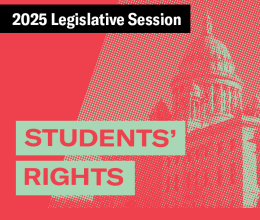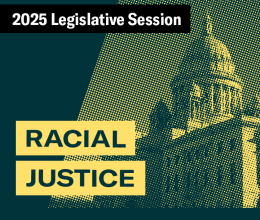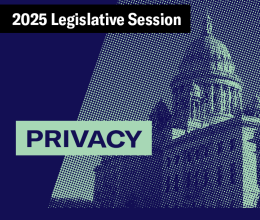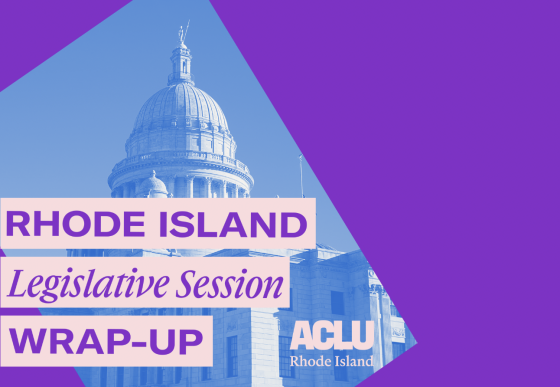One of the more passionate civil liberties discussions to arise in recent months has been around the issue of high-stakes testing, or the use of the NECAP exam as a zero-sum graduation requirement. Much of this advocacy paid off in May, when the Senate passed legislation sponsored by Senator Adam Satchell (S 2059A as amended) to impose a three-year moratorium on the use of such high-stakes testing; the House followed in June with approval of companion legislation (H 8363 as amended) by Representative Gregg Amore. Up to 40% of Rhode Island's students are at risk of not graduating this year, and special education, limited English proficient, economically disadvantaged, and Latino and African-American students are disproportionately affected. The ACLU, parent and student groups, and national education experts testified before the House Health, Education and Welfare committee about these issues and to support legislation sponsored by Representative Eileen Naughton (H 7672) to prohibit the use of standardized testing in evaluating a student’s eligibility to graduate. Similar legislation, sponsored by Senator Harold Metts (S 2185A), was approved by the Senate Judiciary committee in April, but recommitted just a few days later. Previously, the General Assembly approved a joint resolution asking the Board of Education to delay implementation of the requirement and consider other options; the Board of Education voted in May not to reconsider the requirement. Although the Governor declined to sign the legislation, he allowed it to become law without his signature. As a result, those students who were unable to graduate in 2014 solely because of the NECAP requirement will receive their diplomas
High Stakes Testing (H 7327, H 7672, S 2185A, S 2059A)
Status
Passed
Session
2014
Related Issues
Related content

Doe v. Infante-Green
June 30, 2025
Increasing Amount of Social Workers in Schools (H 6045, S 250)
May 9, 2025
Hairstyle Discrimination (H 5841, S 519)
April 15, 2025
School Cell Phone Policies (S 771A, H 5598)
April 4, 2025
School Improvement Teams (H 5165A)
March 28, 2025
Right to an Education (S 177, H 5459)
March 21, 2025
School-Loaned Computer Privacy (H 5176A, S 232)
February 12, 2025
LETTER Re: Warwick School Committee Draft AI Policy
December 12, 2024

